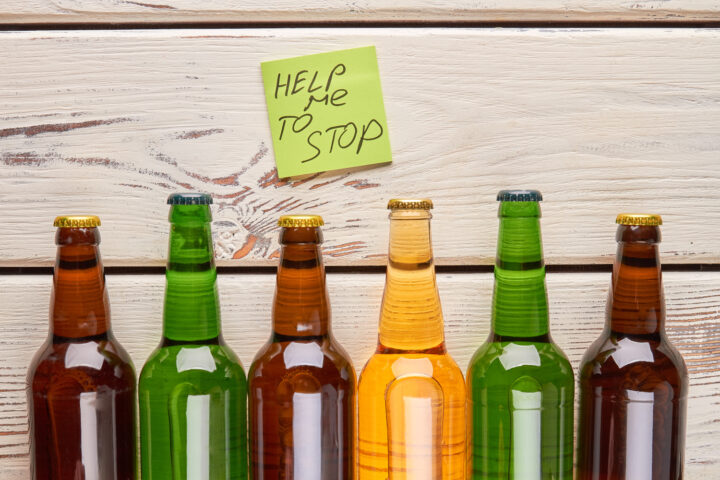Amphetamines are the most common of the central stimulants. It was produced in the early 1930s and launched as a stimulant and slimming preparation, but it currently has no medical use. It was used extensively on both sides of the front during the second world war, and one of the most famous addicts from this period was Adolf Hitler, who took the day after the failed attempt to assassinate him in 1944.
Purchase, sale and possession of amphetamines are banned, but it is still used to some extent, especially for young people and particularly young men. Among the 16-24 year olds have 2.8 percent taking the drug in the last year (Health).
How do amphetamines work?
Amphetamines are eaten / drunk, injected into the veins or sniffed through the nasal mucosa. It works from 4 to 12 hours after ingestion. The substance triggers a high degree of excitement, improved mood, increased self-confidence, suppression of somnolence and appetite and increased motor and intellectual activity, showing itself as agitation, restlessness and wandering thoughts. Both the use and abuse typically occurs in periods. The drug is used in “spurts” of hours to days, where one repeats the intake until the body and head can not take it anymore. They burn and recuperate subsequent forward to the next “jerk”.
Can you become addicted to amphetamines?
Amphetamines are strong physically and psychologically addictive. Amphetamines are strong physically and psychologically addictive, and in a short time can you become addicted and get an obsessive consumption. You develop rapid tolerance in relation to the desired effects of the drug (euphoria), and therefore need to take more and more and more, with increased risk of harmful effects. Withdrawal symptoms are depression, fatigue, irritability, increased appetite, increased need for sleep and increased craving for the drug. Symptoms are rarely life-threatening, but they can last for weeks, especially drug cravings and depression that can make hospitalization necessary because of suicide risk.
There is no effective treatment for withdrawal symptoms.
Definition of Amphetamine Dependence
Regular consumption of amphetamines considered is so addictive that it is regarded as an addiction. Symptoms of amphetamine use can be anything from loss of appetite to very fast breathing. A person who has taken amphetamines over time may experience weight loss, irritability, sleep disorders and problems with the law.
Symptoms of / Reasons for Amphetamine Dependence
- Loss of appetite and weight loss
- Hallucinations and paranoia
- Mood swings
- Legal problems
- Sleep disturbances
- Amphetamine Intoxication
These are amphetamine poisoning if the substance has changed the chemistry of the brain. Signs of amphetamine intake is loss of appetite, increased energy level, insomnia, sweating due to a rise in body temperature and rapid breathing. Intake of amphetamines can also cause euphoria and an additional high energy level, which is why amphetamine users can stay awake for days. These things may sound positive, but when compared with the negative aspects of amphetamine use, so it’s easy to see why it is so necessary to be treated for his addiction.
What are the harmful effects of amphetamines?
You see the most pronounced damage when the drug is injected directly into the veins, but no intake ways is risk-free.
For more intensive and regular consumption you develop a behavior that first manifested by irritability, aggression, hyperactivity, sleep and eating disorders, and which later on may develop into a state characterized by anxiety, stereotypical obsessive behavior, confusion and finally a paranoid psychosis with hallucinations. The psychosis is always transient and subsides during the day / week when you stop consuming the drug.
Sudden death can be seen due to stroke, heart rhythm disorders, heart attack and delirium (condition characterized by lightheadedness, confusion, restlessness and possible. Hallucinations) with hyperthermia (dramatically increased body temperature).
The risk of psychiatric symptoms or of dying increases with repeated use of amphetamines, because there occurs an increased sensitivity to both the neurological and psychiatric symptoms and cardiac symptoms. The risk of injury and death is not only dependent on consumption, but also of its regularity.
Symptoms of amphetamine addiction
There are some signs and symptoms of amphetamine abuse in addicted:
- Lost appetite – if you can manage in a very long time without eating, it may be a sign of amphetamine addiction.
- Extreme weight loss – this in conjunction with the above in a short time may indicate amphetamine addiction.
- Indifference – if you do not care about the consequences of your behavior, this can also be a sign of addiction.
- Feeling isolated and paranoid – psychotic these feelings can be exacerbated in connection with a large intake of amphetamine.
- Hallucinations – for example, large, crawling insects is common in withdrawal symptoms, but some may also experience hallucinations under the influence of amphetamines.
- Mood swings – violent mood swings usually goes hand in hand with amphetamines.
- Legal problems – which in the case of indifference, as mentioned above, can be repeated situations of trouble to keep within the law be a sign of amphetamine use.
- Social problems – trouble keeping a job and problems in relation to other people can be a sign of amphetamine addiction.
- Sleep disorders – to stay awake for days at a time is a typical sign of amphetamine abuse.
What can I do to end an amphetamine abuse?
It is important to know that amphetamine is not a harmless substance, but a substance that has many harmful effects, psychological and health. It can be difficult for the person who is experiencing abuse, to stop it, especially when he is under the influence when megalomania and lack of judgment dominates. In the drug-free periods and during the unpleasant downturn have better opportunities to motivate the user to seek treatment. All municipalities have treatment for amphetamine abusers, and the offer can be found on municipal websites. Self-help groups (Narcotics Anonymous) can for some be a support to avoid relapse.
The harder poisoning symptoms, such as stroke, heart rhythm disorders, heart attack or dramatically increased body temperature requires immediate hospitalization, the psychoses possibly by force.
Which acute poisoning symptoms should be aware of?
The harder poisoning symptoms, such as stroke, heart rhythm disorders, heart attack or dramatically increased body temperature requires immediate hospitalization, the psychoses possibly by force.
An initial intoxication appears agitation, restlessness, compulsive repetitive movements and obsessive.



